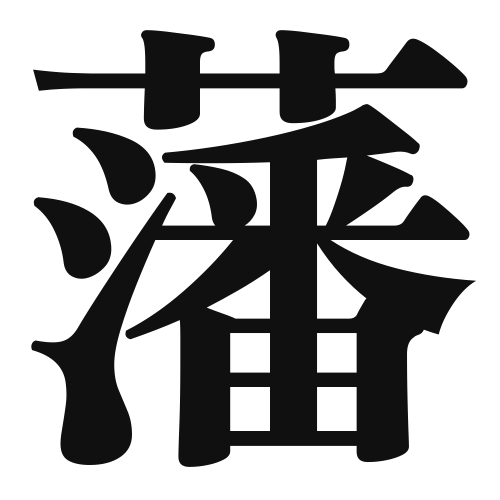1. Overview of Meaning
The kanji “藩” (han) refers to a feudal domain or territory in historical Japan. It signifies a region governed by a daimyo (feudal lord) during the Edo period, representing a political and administrative unit.
2. Formation and Radical
The kanji “藩” is a compound character (会意文字) formed by combining the radical for “grass” (艹) and the character “藩” itself, which relates to the concept of a boundary or enclosure. The radical indicates that the term is associated with plants or vegetation, reflecting the agricultural nature of these domains.
The radical for “藩” is 艹, which is commonly associated with plants and nature.
3. Examples of Usage
Common words and phrases that include “藩” are:
- 藩主 (hanshu) – feudal lord
- 藩地 (handi) – domain or territory
Example sentence in daily conversation:
「江戸時代には、多くの藩が存在しました。」
(“During the Edo period, many feudal domains existed.”)
4. Synonyms and Antonyms
Similar kanji with related meanings include:
- 国 (kuni) – country or nation, which is broader and refers to a larger political entity.
- 領 (ryō) – territory, which can refer to a region but is often used in a more general sense.
Antonyms include:
- 自由 (jiyū) – freedom, which represents the absence of boundaries or restrictions.
5. Cultural and Historical Background
The concept of “藩” is deeply rooted in Japanese culture, particularly during the Edo period when the country was divided into numerous feudal domains. Each “藩” had its own governance, economy, and culture, contributing to the diversity of Japan.
Proverbs and idiomatic expressions related to “藩” include:
- 「藩の外に出る」 (han no soto ni deru) – to step outside one’s domain, meaning to venture beyond one’s comfort zone or familiar territory.
